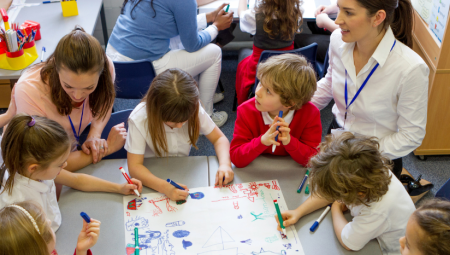Background
Increasing numbers of teenagers are suffering from mental health conditions in the UK. Parents, teachers and young people may not realize that their struggles are due to poor mental health or that effective interventions are available, while teachers and parents are often uncertain when to intervene. To help secondary schools identify young people who may need additional support for their mental health, this project developed a web application (app) called ARTEMIS-A. The app is a mental health assessment which has been co-produced with school staff and pupils to ensure it is appealing and easy to use. This research conducted a systematic review of different models of school-based identification and suggests that systematic screening for mental health conditions is the most effective. However, the time and resources involved in collecting and interpreting questionnaire responses impeded uptake in the hurly burly of everyday school life.
Project Aims
This study:
- Tested if ARTEMIS-A could correctly spot young people in need of support;
- Tested if ARTEMIS-A was as good at spotting young people in need of support as a paper-based test (called the DAWBA), which is commonly used by psychologists and psychiatrists
- Found out what young people, parents, school staff and mental health professionals thought about using ARTEMIS-A in schools
Project Activity
Calibration of ARTEMIS-A in secondary school pupils: This project expanded the item bank with 160 additional questions from existing standardized measures of mental health. Calibration involved 4,000 pupils aged 11-16 years attending five schools in the Greater Manchester area completing the questions in the new improved databank.
Validation of ARTEMIS-A: This study then compared the calibrated ARTEMIS-A with the current diagnostic gold standard for population mental health assessment (DAWBA), to evaluate its convergent validity and determine the optimal threshold for action on ARTEMIS-A scores.
Qualitative exploration of how ARTEMIS-A fits with current school processes: The project team conducted four focus groups, two with pupils and two with school pastoral staff recruited from the participating schools.
Anticipated Impact
ARTEMIS-A is a web application (app) for accurate and rapid identification of mental health difficulties in secondary school pupils, which uses Computerised Adaptive Testing technology (CAT). CAT personalised the questions completed by each young person, based on their previous response, and so required less time and resources to administer and interpret. Depending on the age of respondents, ARTEMIS-A assessment was typically completed in 1-7 minutes. CAT also enabled instant automated scoring and preparation of tailored reports for both pupils and school staff, further reducing the time and resources required to complete assessments.
The core ARTEMIS algorithm can be used to build screening tools tailored for different user groups and settings. Jones and Stochl are currently working with the Department for Work and Pensions to adapt ARTEMIS to be used in Job Centres for mental health screening for job seekers.
Who was involved?
Papers/resources associated with this project
- Burn AM, Ford T, Stochl J, Jones P, Perez J, Anderson JK (2022). Developing an online application to assess mental health difficulties in secondary school pupils (Artemis-A): a user-centred design study. JIMR Formative Research, 2022;6(1):e30565 doi: 10.2196/30565
- Stochl J, Ford T, Perez J, Jones PB. Modernising measurement in psychiatry: item banks and computerised adaptive testing. The Lancet Psychiatry. 2021 May 1;8(5):354-6.
Contact
Peter Jones- pbj21@cam.ac.uk
Jan Stochl- js883@cam.ac.uk





